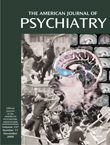Amnesia After Carbon Monoxide Poisoning
To the Editor: Bilateral hippocampal lesions are commonly taught as a model for amnestic syndrome. To be confronted with an acute case of this condition was a profoundly moving clinical experience (1).
Mr. A, a 22-year-old man, was seen after a suicide attempt. A breakup with a girlfriend led to depression. He routed the exhaust from his vehicle into the passenger compartment. After he was discovered, he was sent for emergency hyperbaric oxygen treatment and then transferred to the medical ward.
I was initially relieved to observe Mr. A’s pleasant affect. He returned my greeting readily and cooperated fully. He was able to relate his history through age 18, with salient facts verified by family members. But then his story stopped completely. He had no memory of any events after his 18th year. During formal testing, he was able to repeat words accurately but could not recall any new material once his attention was diverted to other tasks. He had no knowledge of his current surroundings and no memory of his lost relationship, his recent depression, or his suicide attempt. When I asked him about any current suicidal intent, he smilingly denied such thoughts and asked why I would need to ask such a question. Mr. A was locked in the present. He could not learn new facts about his environment or himself.
This unfortunate young man was suffering from anterograde and retrograde amnesia. It was notable that the balance of his examination was normal, including his euthymic affect. Magnetic resonance imaging revealed bilateral hippocampal infarcts. Other than his profound memory deficits, the results of his mental status examination were normal.
When I returned the next day, Mr. A again greeted me pleasantly and did not appear depressed, nor did he remember me. During formal testing, his deficits were found to be unchanged. It was striking to me how Mr. A did not appear depressed, despite evidence that he had been significantly depressed before his suicide attempt. Barring an unanticipated recovery, I suspected he would feel himself forever to be 18.
His family members, initially relieved by his having survived, were devastated by the explanation of amnesia and his poor prognosis. They understood the need for a transfer to a rehabilitation facility after discharge.
One may speculate about the existence of a neural circuit that involves the hippocampus and controls mood; perhaps infarction interrupted the neural pathway of Mr. A’s depressed mood. Or perhaps his 4 years of retrograde amnesia swept away his memory of the lost relationship that had driven his suicide attempt. This man’s case is a tragic example of the survival of the body but a completed suicide of the mind.
1. Shimamura AP, Gershberg FB: Neuropsychiatric aspects of memory and amnesia, in The American Psychiatric Press Textbook of Neuropsychiatry, 2nd ed. Edited by Yudofsky SC, Hales RE. Washington, DC, American Psychiatric Press, 1992, pp 345–362Google Scholar



